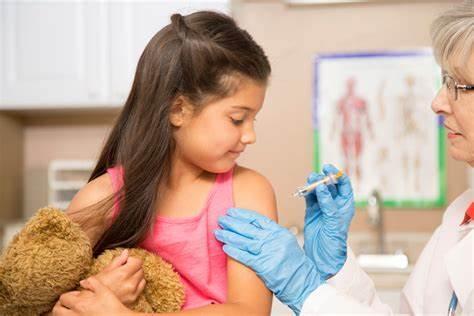
Boy Scout Motto – Be Prepared – Works for Parents of Campers with Allergies and Asthma

Santa Monica, CA –
The idea of summer camp looms large for many kids who wonder: Will I make any friends? What if I get lost in the woods? And for campers with allergies and asthma, “What if I have an allergic reaction or an asthma attack?”
“When kids head off to summer camp, especially for the first time, they have lots of questions,” says allergist Dr. Bernard Geller, Allergy & Clinical Immunology Medical Group. “Kids who suffer from seasonal allergies, food allergies or asthma, also wonder about their health. For them, additional preparation is necessary to keep them safe and happy, so they can enjoy their time away from home.”
If you’re considering camp for your child with allergies or asthma, start planning now to make sure all details are buttoned up before camp begins. Below are five tips from the American College of Allergy, Asthma and Immunology to help you and your child enjoy their summer camp experience.
- Consider a specialty camp – If you’re worried that a regular sleepaway camp might not be fully prepared to handle your child’s allergies and asthma, consider a specialty camp. Increasingly, there are camps focused solely on kids with asthma, and camps that deal specifically with food allergies. These camps provide specialized medical staff and staff who understand how to treat allergic diseases. An internet search should turn up a camp in your area that can provide the special focus your camper might need.
- Let your allergist provide peace of mind – Before starting to pack sleeping bags and extra socks, make sure your camper has everything they need to treat their allergies or asthma. See your allergist to make sure prescriptions are up-to-date, symptoms are under control and dosing hasn’t changed over the school year. Your allergist can provide a personalized plan for you to share with the camp to help your child have the great experience they want.
- Make sure camp staff is prepped too – You can help the camp staff and administration be prepared by communicating your child’s health needs well in advance. If asthma makes some activities difficult for your child, let their counselor know. Send information on what the medical staff needs to know about your child’s medications and ask how they handle emergencies. Find out where the nearest hospital is and how easy it is for staff to get there.
- That leaf? No, don’t touch it! – You’re in for a terrible rash if you cross paths with poison ivy or poison oak. But the itch and discomfort are far worse for those who are allergic. The rash from plants like poison ivy, poison oak and poison sumac are forms of allergic contact dermatitis and are very uncomfortable. Calamine lotion that you send along with your camper can help, but they may need a trip to the camp nurse or doctor if they have an allergic reaction. If the rash is widespread or results in many blisters, the camp doctor may prescribe an oral corticosteroid. If a bacterial infection develops at the rash site, the doctor may prescribe an oral antibiotic.
- Bug juice and mystery meat? – Camp food has come a long way – and some sleepaway camps even have gourmet chefs cooking the meals. But if your child has food allergies they still need to be ready to advocate for themselves and watch closely for allergens. Is your child good about always carrying their epinephrine auto injector, and a spare? Talk with the kitchen staff in advance about how they handle the possibility of cross contamination and let counselors and medical staff know the foods that will cause an allergic reaction. Your camper should tell friends about their food allergy so that if a reaction happens, their friends will be prepared to help.
If allergies or asthma are holding your child back, it’s time to take control. For more information about treatment of allergies and asthma, visit our website at www.SneezeWheeze.com, or reach us by telephone: (310)828-8534 or by e-mail: FrontOffice@allergyandclinical.com
Dora Afrahim, MPAP, PA-C
Allergy & Clinical Immunology Medical Group
You Might Also Enjoy...


FDA Approves the First Peanut Allergy Treatment

Telehealth: The Advantages of Telemedicine

Four Tips to Help you Stay Calm and Ease Sniffling, Sneezing, & Wheezing this Holiday Season

Keeping Allergies and Asthma at Bay is the Best Gift



